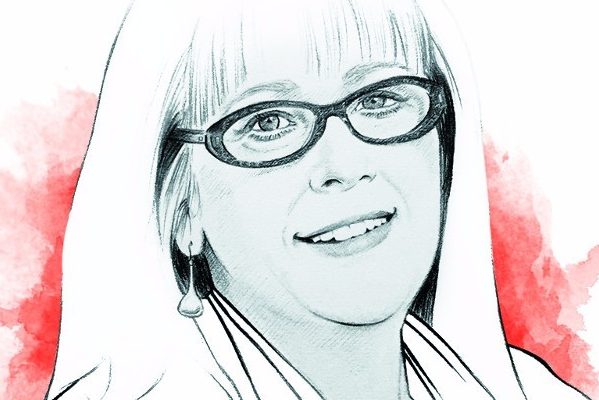An unwelcome phoenix has peered out from the flames. Outside these august pages, there have been a multitude of calls for ‘strong leadership’ as a route out of the coronavirus crisis. Leaving aside the fact that hero leadership was last in vogue in the 1980s and fell rapidly out of fashion for good reason, what possible case is there for strong leadership to solve a complex problem to which nobody knows the answer? Leading without the necessary intel is likely to fail; muscular leadership fails faster and further.
The answer to intractable problems like coronavirus comes from dialogue and discussion, not blind dynamism. Ploughing a determined, certain leadership path based on the ‘the science’ is absurd. There are several competing schools of science, and always have been. Scientific thought is a loose collection of theory, argument, experiment and debate: it is not a homogenous whole that can instantly provide a single correct answer to a novel and intricate question.
Every day, virus or no virus, leaders are presented with conflicting data, research and ideas. Good leadership is finding a path through all that: no such journey is perfect, but good leaders hear the arguments and plot better routes than others. What then is ‘strong leadership’? Is it ignoring much of the advice, turning one’s ear against debate and dissent, and striding into the unknown on gut instinct? As writer Trudy Heller discovered in the late 1980s, these traditional notions of powerful leadership misconceive how leadership is defined. Followership defines leadership, not vice versa. The Australian leadership expert and corporate trainer Aubrey Warren explored a survey of 189,000 people. He found four behaviours that separate strong leadership teams – note the word teams – from weak ones. The findings defied any notion of heroic, self-sure control.
‘Solving problems effectively’ and ‘operating with a strong results orientation’ were two – unsurprising – findings. The other behaviours were more fascinating: ‘seeking different perspectives’ and ‘supporting others’. Strong leadership, it emerges, is born from co-creation and collegiate teams, not the acts of strident heroines. Strength is found in embracing uncertainty and disagreement, rather than cutting it out.
This is wonderfully paradoxical. When we unpack people’s concept of strong leadership, it sits awkwardly with conventional notions of power. If leaders make it ‘all about them’ rather than ‘all about me’, they are subservient rather than superior. Muscularity is a poor substitute for tenderness.
There is much to fear from coronavirus, yet there are some things to gain. One of them is a global debate about what leadership should be. We will have some profound case studies: from the political world; from the healthcare sector; from business management. The likelihood is that heroic leadership will again be found to be a false prophet.
In the fight against coronavirus, there is much conflicting evidence. Mitigation strategies – lockdowns and the like – are not programmes that sit in isolation from economic and social concerns. Everything is a trade-off. The leaders that will prosper are those that treat their followers like dissenting, challenging grown-ups, shaping and morphing their strategies as they are buffered by new evidence and ideas: accepting imperfection but finding a way through. They will balance financial goals with the need to protect people and build national and organizational resilience.
The strongman leader is an obsolete doctrine. When crisis hits, organizations can react with dewy-eyed glances back at ideas that failed in times of prosperity, imagining that they will somehow work in times of emergency. The phoenix of ‘strong leadership’ appeared briefly in the flames of the coronavirus crisis. It should be incinerated by the reality of what is now required.

